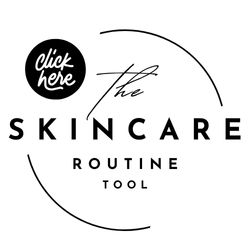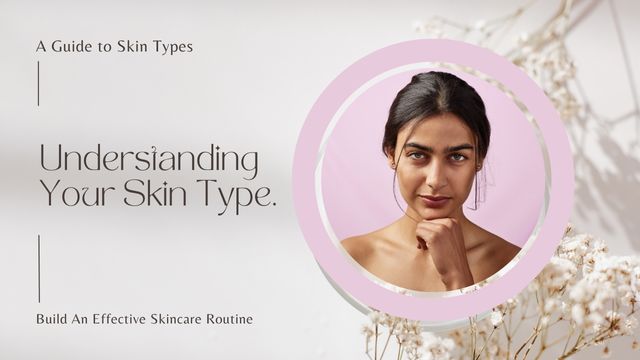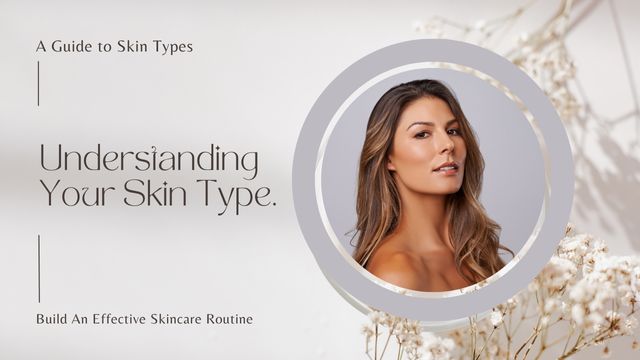Estimated Reading Time: 8 minutes
Quick Summary
Understanding your skin type is the first step to choosing the right skincare routine, products, and treatments. Whether you have dry, oily, combination, sensitive, or normal skin, knowing your type helps you achieve healthier, more radiant results.
Build An Effective Skincare Routine
When it comes to building an effective skincare routine, understanding your skin type is the foundation. Without it, even the most expensive serums or creams may not give you the results you want—in fact, using the wrong products may even make your skin worse. This guide will walk you through the five main skin types (dry, oily, combination, sensitive, and normal) so you can identify which category you fall into and care for your skin with confidence.
Pro Tip: Pairing your knowledge of skin type with a skincare routine finder for beginners can help you build the right daily steps without feeling overwhelmed.
Why Understanding Your Skin Type Matters
Knowing your skin type isn’t just trivia—it’s about making smart decisions for your skin’s health. Think of it like picking the right shoes for a marathon: you wouldn’t run in flip-flops, right? Similarly, your skin deserves products that match its unique needs.
Some benefits include:
- Preventing irritation and breakouts
- Spending less money on products that don’t work
- Building a consistent skincare routine
- Protecting your skin barrier from damage
- Enhancing natural radiance
Curious about routine payoffs? Check out 7 proven skincare routine benefits you’ll see in 30 days to understand how quickly results can show.

5 Core Benefits of Understanding Your Skin Type
1. Personalized Skincare That Actually Works
When you know whether you’re oily, dry, or somewhere in between, you can select cleansers, moisturizers, and serums that target your specific needs. For example:
- Oily skin types benefit from gel cleansers and lightweight hydration.
- Dry skin flourishes with rich creams containing hyaluronic acid.
- Sensitive skin thrives on fragrance-free, soothing products.
To fine-tune, try this personalized skincare tool that recommends science-backed, custom routines matched to your skin type.
2. Save Time and Money on Products
We’ve all fallen into the trap of beauty marketing—buying the “next best thing” only to find it doesn’t work for us. By understanding your skin type, you immediately filter out products that won’t serve you. This is especially helpful for avoiding skincare fads that may be harsh or ineffective.
3. Better Prevention of Skin Concerns
Each skin type is prone to specific issues:
- Dry skin → flakiness, tightness, early fine lines
- Oily skin → acne, enlarged pores, shine
- Combination skin → both dry patches and breakouts
- Sensitive skin → redness, irritation, stinging
- Normal skin → minor seasonal changes, occasional blemishes
When you know your skin’s tendencies, you can proactively prevent these concerns.
4. Boost Confidence and Consistency
Imagine no more guesswork in the beauty aisle. When you’re confident about your skin type, you naturally feel more in control, making your daily skincare not just a chore but an enjoyable ritual.
Still debating routines? Read Is a skincare routine worth it? to explore top benefits.
5. Long-Term Skin Health and Aging Gracefully
Skincare isn’t just about looking good now; it’s about protecting your skin for decades to come. A person who understands their skin type can:
- Strengthen their moisture barrier
- Block premature aging caused by sun and stress
- Maintain elasticity and smooth texture over time

How to Identify Your Skin Type
Here’s a quick test you can do at home:
- Wash your face with a gentle cleanser.
- Pat dry and leave your skin bare.
- Wait 1–2 hours and observe:
- Tight, dull, flaky? → Dry
- Shiny, greasy, prone to pimples? → Oily
- Both oily in T-zone and dry on cheeks? → Combination
- Red, reactive, easily irritated? → Sensitive
- Smooth, balanced, few concerns? → Normal

Common Misconceptions About Skin Types
-
My skin type never changes.
Actually, your skin can shift with age, weather, hormones, or stress. -
Oily skin doesn’t need moisturizer.
False! Oily skin still needs hydration, just in lighter forms. -
Normal skin doesn’t need care.
Even balanced skin benefits from sunscreen and regular hydration.
Conclusion
At the heart of better skincare is understanding your skin type. Once you know whether you’re dry, oily, combination, sensitive, or normal, you can finally create a skincare plan that works for you instead of against you. Take the time to evaluate your skin—it’s an investment in confidence, health, and beauty.
Start today: test your skin type, then explore tools like the skincare routine finder for beginners to kickstart your personal path.
Want to dive deeper? Check out our related guide: The Ultimate Beginner’s Skincare Routine
FAQs (People Also Ask)
How do I determine my skin type?
To determine your skin type, observe how your skin feels throughout the day, especially after cleansing. The key skin types are normal, oily, dry, combination, and sensitive. Signs include shine and enlarged pores for oily skin, flaky patches for dry skin, and irritation for sensitive skin. The “cleansing method” and “blotting sheet test” are popular ways to assess your type: cleanse, wait an hour, then evaluate oil level and comfort on cheeks, forehead, and nose.
What are the main characteristics of each skin type?
Normal: Balanced moisture, few imperfections, small pores, radiant appearance.
Oily: Shiny skin, visibly enlarged pores, frequent acne or blackheads.
Dry: Dull, rough patches, red areas, less elasticity, itching or flaking.
Combination: Oily T-zone (nose, forehead, chin) with dry or normal cheeks.
Sensitive: Prone to irritation, redness, burning, reactions to skincare products.
Can my skin type change over time?
Yes, skin type can change due to age, hormonal shifts, weather, illness, or changes in skincare routines. For example, teenagers tend to have more oily skin due to hormonal changes, while skin can become drier or more sensitive with age.
What ingredients or products should I use for each skin type?
Normal: Gentle cleansers, lightweight moisturizers, broad-spectrum sunscreen.
Oily: Oil-free or non-comedogenic products, lightweight moisturizers, salicylic acid, and sometimes astringents.
Dry: Hydrating cleansers, rich moisturizers (with hyaluronic acid or glycerin), avoid harsh exfoliants.
Combination: Use specific products for oily (T-zone) and dry (cheeks) areas.
Sensitive: Fragrance-free, hypoallergenic products, calming ingredients like aloe vera and chamomile, avoid strong actives.
How does my skin type affect other skincare concerns like acne or aging?
Oily skin is more prone to acne due to excess sebum, while dry skin may show more wrinkles early due to lack of moisture. Sensitive skin often reacts to strong active ingredients, so gentle formulas are best. Choosing tailored products reduces risk of irritation and improves results. Sun protection is essential for every skin type.
References:
WebMD
What’s Your Skin Type?
https://www.webmd.com/beauty/whats-your-skin-type
The Skin Institute
Determining And Understanding Your Skin Type
https://www.theskininstitute.org/determining-understanding-skin-type/
Renee Rouleau
What is My Skin Type and How to Find It
https://www.reneerouleau.com/pages/skin-types
CeraVe
What Is My Skin Type? | Facts & Tips
https://www.cerave.com/skin-smarts/skincare-tips-advice/what-skin-type-do-i-have
Eucerin
About skin | Skin types and conditions
https://int.eucerin.com/about-skin/basic-skin-knowledge/skin-types
Ask The Scientists
Skin Type Quiz: 7 Questions to Identify Your Type
https://askthescientists.com/skin-type-quiz/
Cleveland Clinic
What Is My Skin Type and Why Does It Matter?
https://health.clevelandclinic.org/understanding-skin-types
Great Job Marie Bernat & the Team @ Spavelous Source link for sharing this story.




